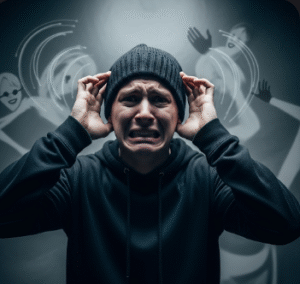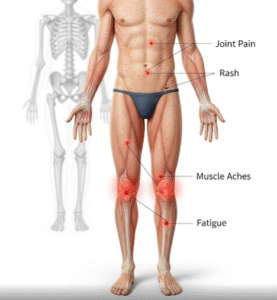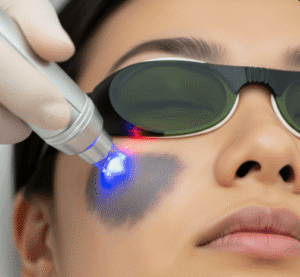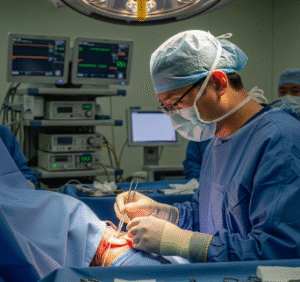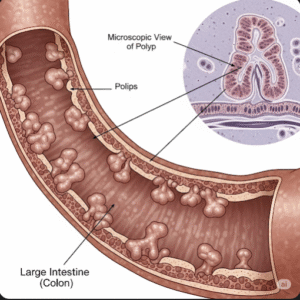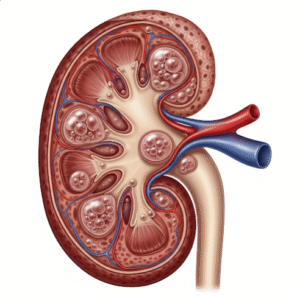Overview
Renal colic refers to sudden, severe pain caused by a blockage in the urinary tract, most often due to kidney stones. The pain usually starts in the flank or lower back and may radiate to the abdomen, groin, or genitals. It is considered one of the most intense types of pain a person can experience.
In Korea, renal colic is a common emergency condition, and patients benefit from rapid diagnosis through ultrasound, CT scans, and urine tests, followed by minimally invasive treatments like laser lithotripsy or extracorporeal shock wave lithotripsy (ESWL).
➤ Severe flank or lower back pain
➤ Pain that radiates to groin or genitals
➤ Often linked to kidney or ureteric stones
➤ Requires urgent medical evaluation
Key Facts
➤ Caused mostly by kidney stones blocking urine flow
➤ Pain may come in waves (colicky pain), lasting minutes to hours
➤ Often associated with nausea, vomiting, and blood in urine
➤ Korea offers advanced, non-surgical treatments for kidney stones
What is Renal Colic?
Renal colic is a type of acute, intense pain that develops when urine flow is obstructed by stones or other blockages in the urinary tract.
The ureter (tube connecting kidney to bladder) is a narrow channel, so when a kidney stone moves through it, the ureter contracts forcefully, leading to sharp, spasmodic pain.
What Symptoms Are Related To
Typical symptoms of renal colic include:
➤ Severe flank or back pain on one or both sides
➤ Pain radiating to the groin, lower abdomen, or genital area
➤ Colicky pain pattern – intense waves of pain that come and go
➤ Blood in urine (hematuria)
➤ Frequent and urgent urination
➤ Nausea and vomiting due to severe pain
➤ Restlessness – patients often cannot stay still because of discomfort
What Causes / Possible Causes
Renal colic is most often caused by urinary tract obstruction. Common causes include:
➤ Kidney Stones (Urolithiasis)
➤ Calcium stones (most common)
➤ Uric acid stones
➤ Struvite or infection-related stones
➤ Other Causes
➤ Blood clots in the urinary tract
➤ Ureteral strictures (narrowing)
➤ Tumors pressing on the urinary tract
➤ Congenital urinary abnormalities
When Should I See My Doctor
Seek urgent medical help if you experience:
➤ Sudden, severe flank or groin pain that does not improve
➤ Blood in urine (pink, red, or brown urine)
➤ Fever, chills, and painful urination (possible infection)
➤ Nausea and vomiting with dehydration
➤ Repeated episodes of colicky pain
➤ Inability to urinate despite urgency
⚠️ Infection with urinary obstruction is a medical emergency and requires immediate treatment.
Care and Treatment
Treatment focuses on pain control, stone removal, and preventing recurrence.
➤ Immediate Pain Relief
➤ Strong painkillers (NSAIDs, opioids if severe)
➤ Antispasmodic medications to relax ureters
➤ Medical Expulsive Therapy
➤ Alpha-blockers (e.g., tamsulosin) to help pass small stones
➤ Hydration & Monitoring
➤ Increased fluid intake (unless contraindicated)
➤ Urine straining to detect passed stones
➤ Procedures for Larger Stones
➤ Extracorporeal Shock Wave Lithotripsy (ESWL) – sound waves to break stones
➤ Ureteroscopy with laser lithotripsy – stone removal with a scope
➤ Percutaneous nephrolithotomy (PCNL) – for very large stones
➤ Stent placement to relieve obstruction
➤ Prevention of Recurrence
➤ Dietary changes (low salt, reduced oxalates, proper hydration)
➤ Medications for uric acid or calcium regulation
➤ Regular follow-up imaging and urine tests
Treatment Options in Korea
Korea offers world-class urology and nephrology care with minimally invasive techniques for kidney stones and renal colic.
➤ Advanced Diagnostics
➤ CT urography and low-dose CT scans for accurate stone detection
➤ Urine metabolic studies to identify stone type
➤ Ultrasound for quick emergency diagnosis
➤ Specialized Treatments
➤ Shock Wave Lithotripsy (ESWL) – widely available in major Korean hospitals
➤ Laser Ureteroscopy – safe and effective for mid-to-lower ureteric stones
➤ PCNL for large or complex stones
➤ Robotic surgery for selected cases in advanced centers
➤ Top Hospitals in Korea for Renal Colic & Kidney Stones
➤ Asan Medical Center (Seoul) – Advanced urology department
➤ Samsung Medical Center – Cutting-edge laser lithotripsy and ESWL
➤ Seoul National University Hospital – Renowned nephrology and urology specialists
➤ Wooridul Hospital – Minimally invasive procedures and pain management
Final Thoughts
Renal colic is a medical emergency that requires quick diagnosis and treatment. While most cases are caused by kidney stones, other blockages must also be ruled out.
In Korea, patients benefit from fast emergency care, advanced imaging, and minimally invasive treatments, making it one of the best destinations for kidney stone and renal colic management.
If you experience sudden severe flank pain, blood in urine, or fever with urinary symptoms, seek immediate medical attention to prevent complications.



